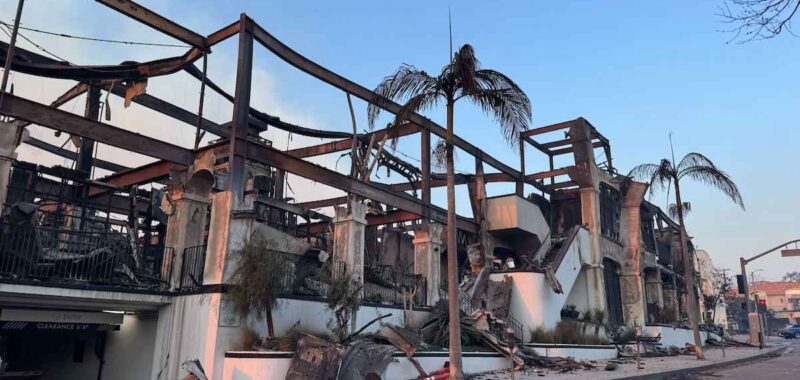The wildfires in Los Angeles have caused unspeakable damage, heartbreak and loss of life. As of Monday, the five major fires have burned about 60 square miles in the LA area and 24 people have been killed.
While the current focus is rightfully on containing the blazes and protecting residents, it’s worth taking stock of where housing markets stand in the affected parts of the Los Angeles metro area. Data from Altos Research shows an area with expensive housing, rising inventory and conditions that lean favorable to sellers.
LA’s housing market has largely stabilized after the turbulence of the post-pandemic years and the rapid rise of mortgage rates beginning in 2022. The current median home price is $1.47 million, down negligibly from a year ago.
While most of the country is suffering from declining inventory, LA’s is up 33% year over year, and pending new sales have gradually risen since the beginning of 2023. At the time mortgage rates began to rise, LA overwhelmingly favored sellers, but it’s shifted significantly toward buyers since then.
When looking at the parts of the city that are most impacted, it’s clear that the wildfires have destroyed — or are threatening to destroy — some pretty expensive housing. And looking at them together is important because these markets are linked, particularly as displaced residents look to find replacement housing.
The areas affected by the Palisades Fire are significantly more expensive than those affected by the Eaton Fire.
Pacific Palisades is ground zero for the Palisades Fire, and the median home price in the area is $6 million. The median price in Malibu — located just to the west along the Pacific coast — is $6.95 million. Malibu has thus far not been in the direct path of the fire. Santa Monica is just south of the boundaries of the Palisades Fire, and the median home price there is $3.8 million.
The Eaton Fire has engulfed Altadena, which has a median price of $3.2 million. If the fire moves further south, housing in Pasadena, San Marino and Arcadia will be in danger. The median home prices there are $1.9 million, $3.9 million and $3.2 million, respectively.
Like most of the country, data indicates Los Angeles is a seller’s market, but it differs according to the specific area. Altos’ Market Action Index measures the balance between buyers and sellers, with any score above 30 considered a seller’s market.
As a whole, the LA metro area sits at 41.6. But fire-ravaged Altadena has a much higher reading than other areas near the fire at 54.9. The areas near the Palisades Fire have slightly lower index numbers, with Malibu (27.1), Pacific Palisades (31.9) and Santa Monica (33.5) having the lowest readings among the areas analyzed.
Given that the fires are still raging and full assessments haven’t been made in areas already destroyed, it will likely be months before we know the full extent of the damage. But if data in cities ravaged by hurricanes and other natural disasters is any indication, housing activity in the area is about to grind to a complete halt.
Following Hurricane Milton in October, the Tampa metro area saw new listings and new sales drop off a cliff. But the market sprang back to life when the immediate threat passed. This resulted in new sales and new listings rising by 500% or more, suggesting that the market merely went on pause.
It’s hard to say whether this is how things will play out in LA after the wildfires are contained. Given the extent of the damage, however, it’s reasonable to expect that the destruction of homes and many newly displaced residents will lead to an overall drop in supply and a sudden surge in demand from those suddenly looking for housing.

